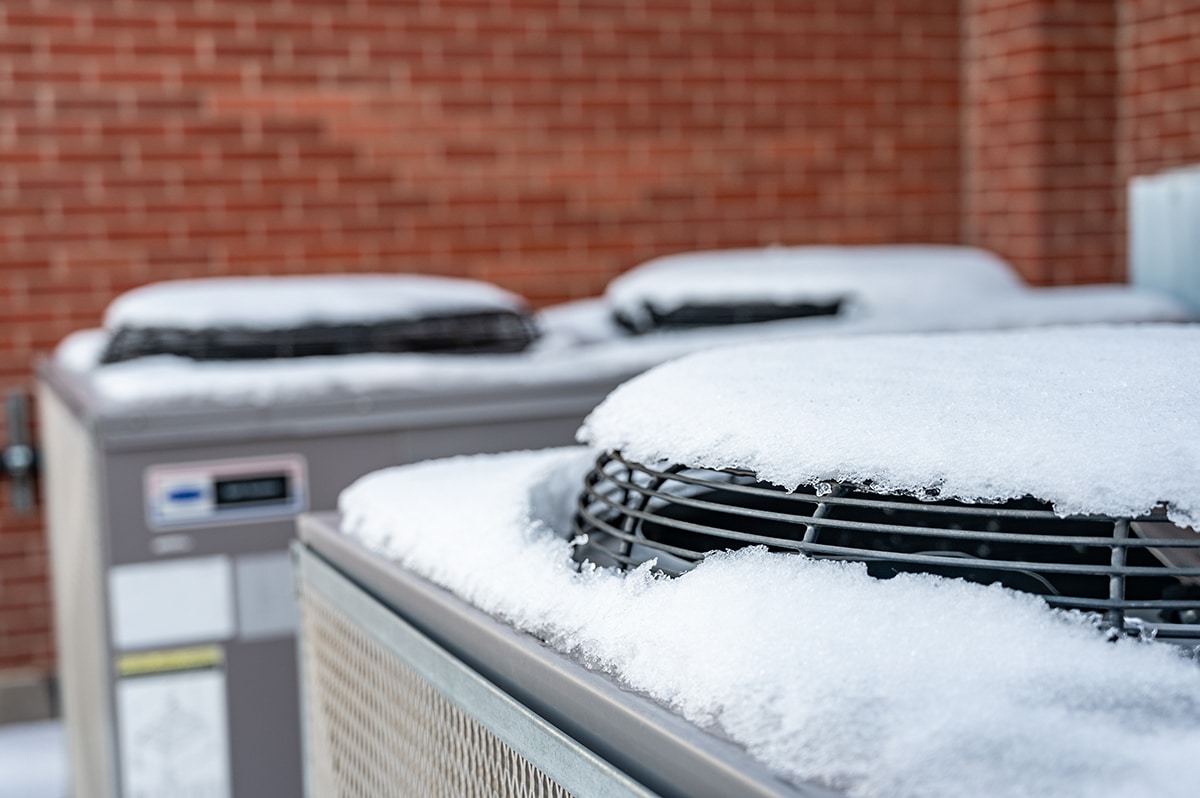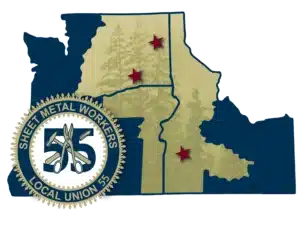Should You Clean the Snow Off Your HVAC?
When you think of effects of harsh winter weather you probably conjure up images of icy roads, snow drifts on your front porch, or iced over cars. But the ice and snow of winter can also affect your HVAC system.
Without the proper care, HVAC units can sustain major damage from heavy ice and snow. As we already know, the Tri-Cities has its share of ice storms and snowstorms during the cold winter months.
There are steps you can take, however, to protect your HVAC so it can keep your home cozy and warm during the cold winter weather.
Prevent Buildup of Snow and Ice on Your HVAC
When snow and ice begin to cover your HVAC unit, you run the risk of your unit freezing or an emergency shutdown occurring. Your home would no longer receive heat at that point. Then what potentially happens is the pipes in your home start to freeze, leading to major plumbing problems.
This is why it is imperative that you clean the snow off your HVAC. This will prevent damage to the unit that could end up being very expensive.
In fact, it is a good idea to keep a wide perimeter around your HVAC unit clear of snow and ice. After a major snowstorm, clear a space that is at least 18 inches around the unit. Aside from that, make sure to have the top and sides of the unit uncovered. As you remove ice from your HVAC, do not use sharp objects because you do not want to damage the coils and fins.
Heavy snow or ice accumulation can bring about problems with airflow, as well as cause the condensing unit or heat pump to fail. That translates into a hefty repair of your HVAC system.
Inspect Your Exterior Vents
You never want snow buildup obstructing your heating vents, as that could be dangerous and cause damage to your HVAC system. So make sure you examine your exterior vents and eliminate any accumulation of snow or ice following a storm. You should make checking your exterior vents a regular part of your snow removal process.
Keep Your HVAC Exhaust Clear
Avoid having a large amount of snow accumulate around the exhaust of your furnace, which would prevent the furnace from operating. Another issue related to a blocked exhaust is carbon monoxide starting to seep into your home. This can lead to serious health problems for you and your loved ones. The vast majority of furnaces have safety mechanisms in place in case the exhaust becomes obstructed.
Protective System for Your HVAC
When it comes to clearing snow from your HVAC, you might think about using a protective system for your heat pump. Protective systems should catch the snow prior to it reaching your outdoor unit. This provides additional protection against snow and ice.
You must also clear the snow off the top of the protective system. However, most protective systems will provide some cover around the HVAC unit so you can avoid doing an extensive amount of shoveling under or around it.
Another benefit of a protective system is that it keeps your outdoor heating unit safe from icicles that can form on the gutters or roofing above the unit. If any icicles make their way into the HVAC system, they could cause significant damage. You do have the option of purchasing or building a protective system for your outdoor heating unit, as well.
Look to Apollo Heating and Air Conditioning for Expert Installs & Maintenance of Your Residential Furnace
Apollo is the Northwest leading provider for heating service for homes and businesses in the Tri-Cities. We not only evaluate and help you control the comfort and quality of your home’s air, we can also offer solutions for managing your energy costs.
Our maintenance service optimizes the efficiency of your system, while also reducing the likelihood of a breakdown, for one low price.
At Apollo, we understand that the function of your heating system is a high priority. That is why we are committed to exceptional service and repair of your furnace to ensure it works flawlessly this winter.
Learn more by contacting Apollo Heating and Air Conditioning! Call us at (509) 396-COLD (2653).



